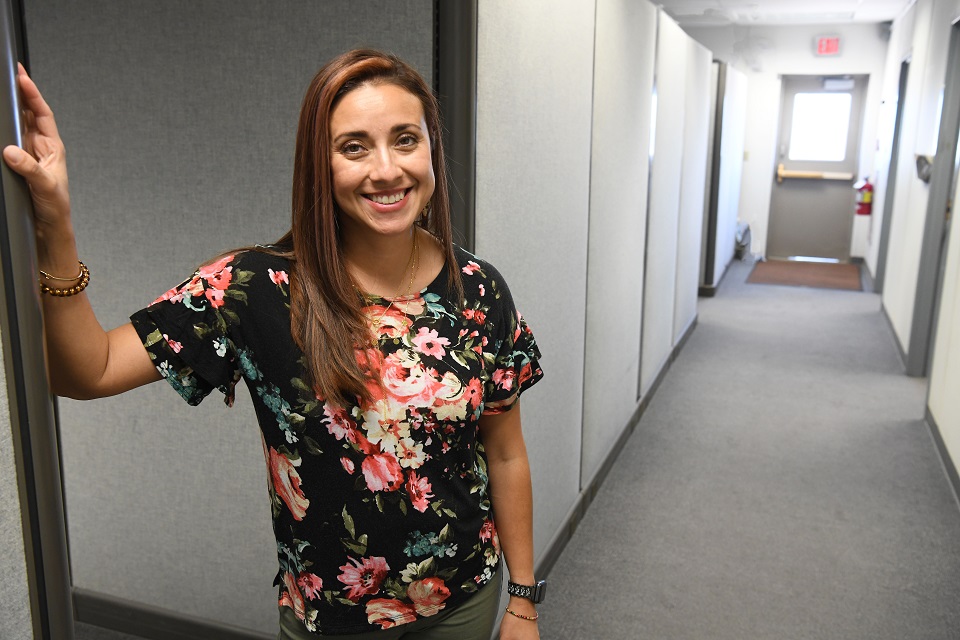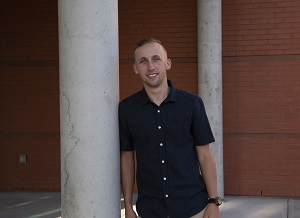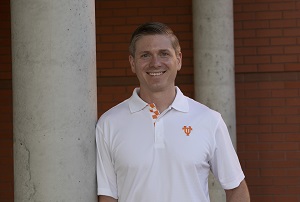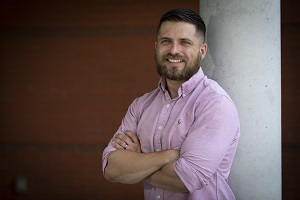Connecting military to civilian careers

L. Holt, former DOD Skill Bridge Program intern, is a full time Pantexan who is “able to put the knowledge from my degree to use! I was not able to fully bring my environmental background to use in the Air Force because my career field was focused in occupational health.”
Consolidated Nuclear Security offers an opportunity to our nation’s service members transitioning into the civilian workforce. In conjunction with the Department of Defense, CNS is serving as an approved location for the DOD Skill Bridge program.
This program is a pathway for service members to gain valuable civilian work experience through specific industry internships during the last 180 days of service, connecting them with industry partners in real world job experiences.
Currently, there are two interns: B. Matthews (Y-12 Safeguards and Security) and J. Toliver (Global Security and Strategic Partnership). Two previous interns, L. Holt (Pantex Environmental Compliance) and Z. Trujillo (Organizational Development and Training) are now CNS employees. And while 2020 has been a questionable year in terms of normalcy, it’s a positive year for Diversity and Inclusion Specialist Sundi Wright since CNS participates in this mutually beneficial partnership that will grow our robust veteran population at CNS.

B. Matthews, DOD Skill Bridge Program intern and Air Force officer, said, “The most valuable lesson I’ve learned is to listen to prior experiences and learn from the good and the bad to pave a better way for the future.”
“This is a chance for CNS to benefit from early access to qualified, potentially cleared, mid career employees who are familiar with highly regulated environments such as those at Pantex and Y-12,” Wright said. “Some come with nuclear experience while others have extensive leadership experience. I am very passionate about this project and was happy to be able to get it going here at CNS.”
The interns, current and former, are fans of the program, too.
Holt said, “Many of the skills I attained in the Air Force directly transferred because they are similar in nature. The plant follows the same regulations, so it made for an easy transition all around. The internship gave me the opportunity to learn how to use what the Air Force has graciously taught me in order to continue to serve. It is a bittersweet ending to a chapter, but I feel this opportunity has given me a great chance.”

J. Toliver, DOD Skill Bridge Program intern and an Army Special Forces officer, is often found in the Jack Case Center sporting an orange and white checkerboard mask and will respond if you say, “Go Vols.”
Current intern Toliver said, “I’m learning how to speak a new language: the language of the Nuclear Security Enterprise. As an Army Special Forces officer, I studied Arabic to better understand the culture of my partner forces overseas. Learning the language and culture of the NSE and CNS/Y-12 is priceless as I join this dynamic team.”
By providing service members the opportunity to participate in career and skill training programs, companies improve the service members’ employment options upon their transition from active duty. The internship also allows them the chance to see comparisons between military and civilian jobs while providing networking functions essential to successful careers.
Matthews said, “Although DOE and DOD are different, they are also very similar. As part of the Air Combat Command, my daily missions involved large volumes of highly sensitive information. That said, one of our main priorities was to protect that information. With a background of protecting the integrity of national security, I foresee a huge benefit of that experience here.”

Z. Trujillo asks coworkers: “As a country we can trust 24 year olds to lead 40 soldiers between the ages of 18–30 in a foreign country in combat while representing the interests of the U.S. I ask my coworkers at CNS to consider this: Why wouldn’t you want to hire individuals who are accustomed to and capable of such large responsibilities?”
New Y-12er Trujillo said, “In the Infantry, we are a results-driven organization that accepts nothing less than excellence because at the end of the day, the ability to appropriately plan and train will either negatively or positively impact survivability in combat and has third and fourth order effects. So what I bring to the table is an in depth and rigorous knowledge of planning processes to increase efficiency, mitigate risks, and achieve results that was cultivated by years of leading, training, coaching, mentoring, and developing soldiers for combat.”
These four employees may represent different branches of the military, but there is one topic they agree on: Pantexans and Y-12ers are helpful.
Holt said, “Everyone who I have met and trained with has been very helpful and have freely shared their knowledge with me. It has been a great experience, and I will promote the internship program to any member who is transitioning!”
Similar sentiments were shared by Trujillo and Matthews. “Everyone in my organization has been so awesome and helpful; they definitely made the transition to the civilian workforce feel welcoming,” Trujillo said.
“My favorite part has been meeting everyone and hearing everyone’s experiences,” Matthews said. “Every single person I’ve met at Y-12 has welcomed me with open arms, willing to help in any way possible. As a transitioning active duty member, I couldn’t ask for a better situation. I’m blessed that CNS has provided me this opportunity, and I hope to lead future Skill Bridge interns.”
Toliver wrapped everyone’s thoughts up by saying, “In spite of the challenges we all face with COVID-19, the people are just fantastic. Everyone has been so welcoming and supportive; it really lets me know that I’ve picked the right team to join at the end of my active duty military service.”
